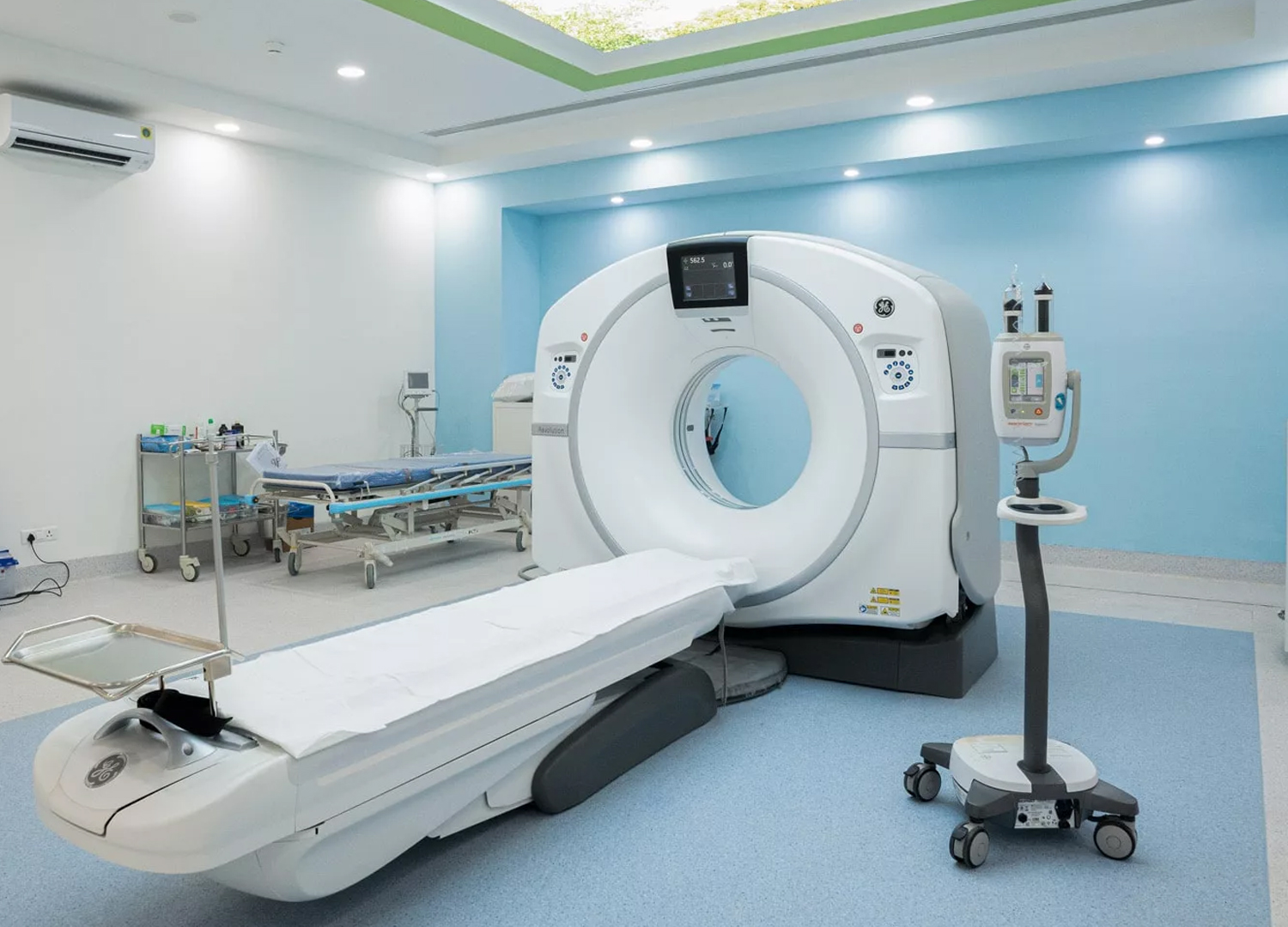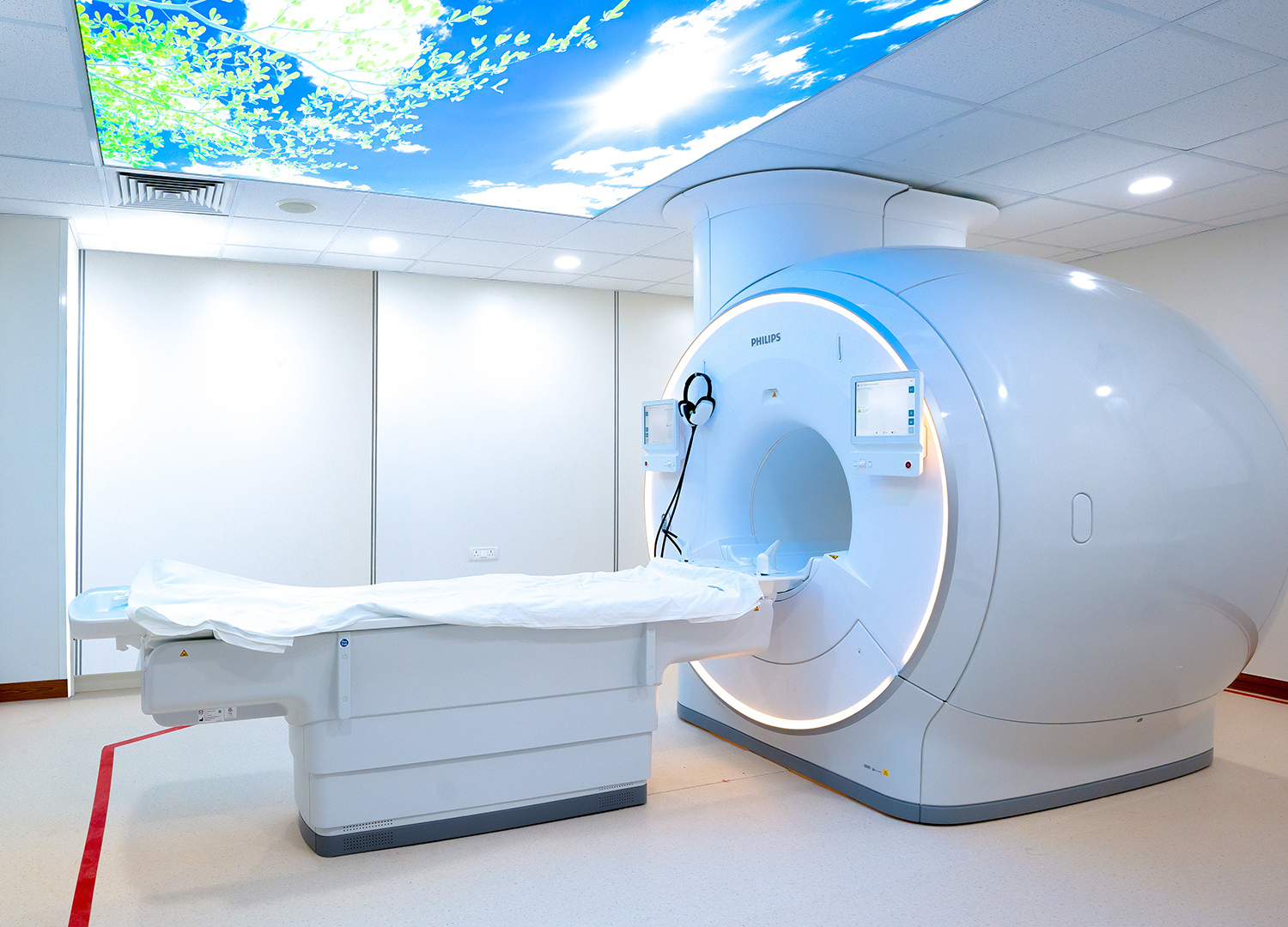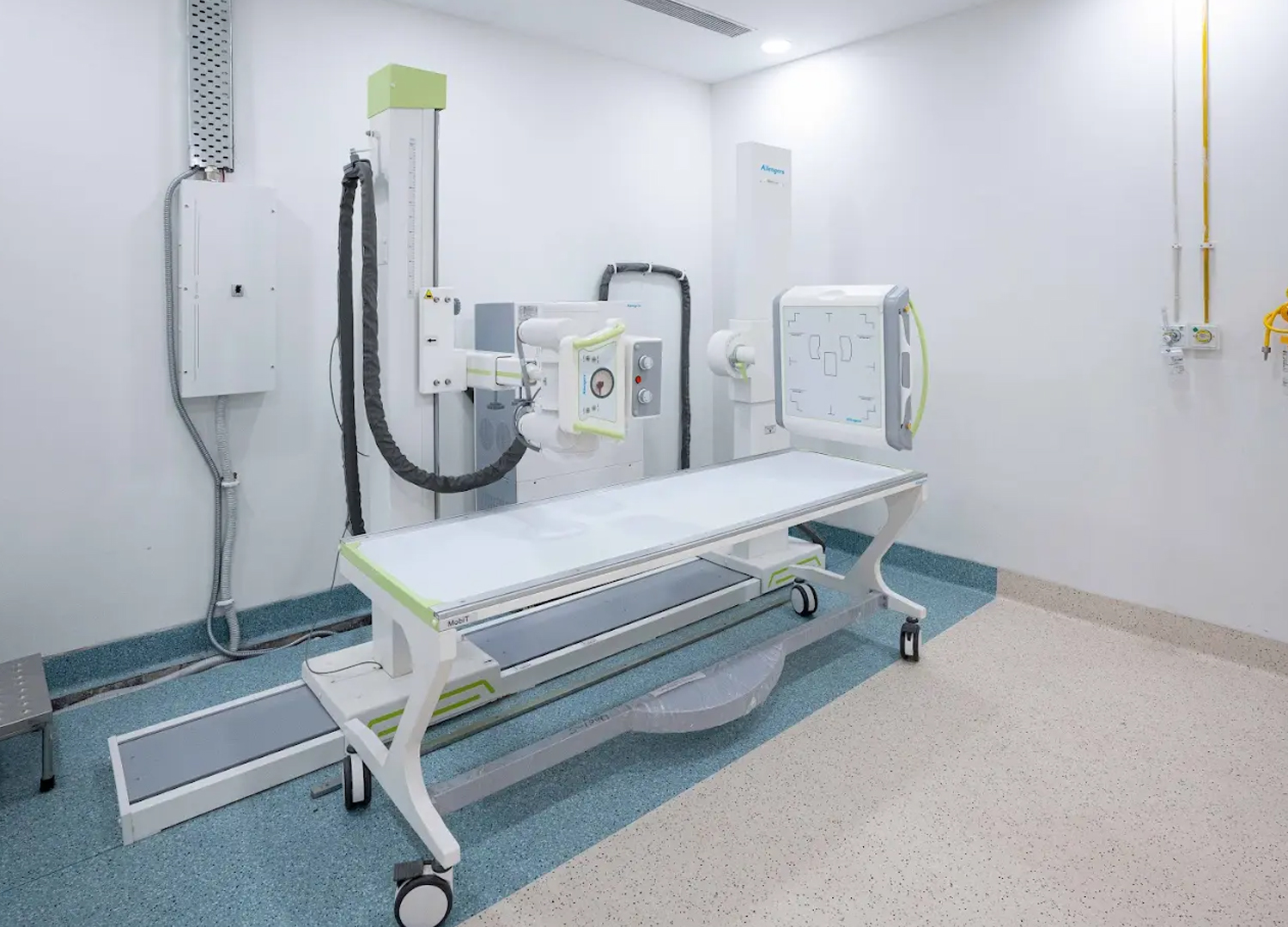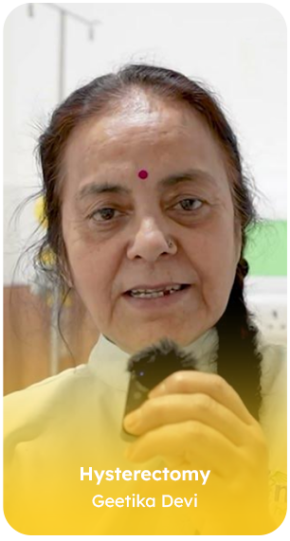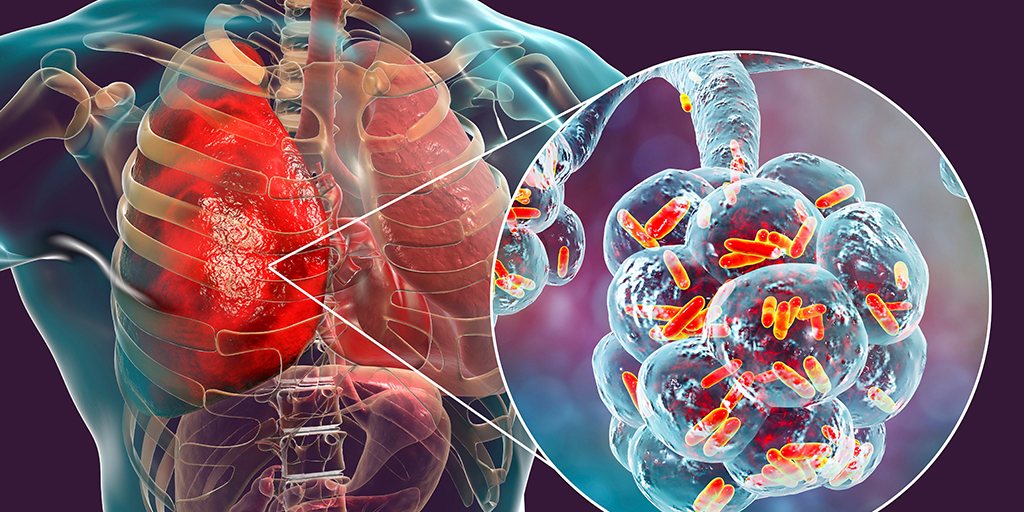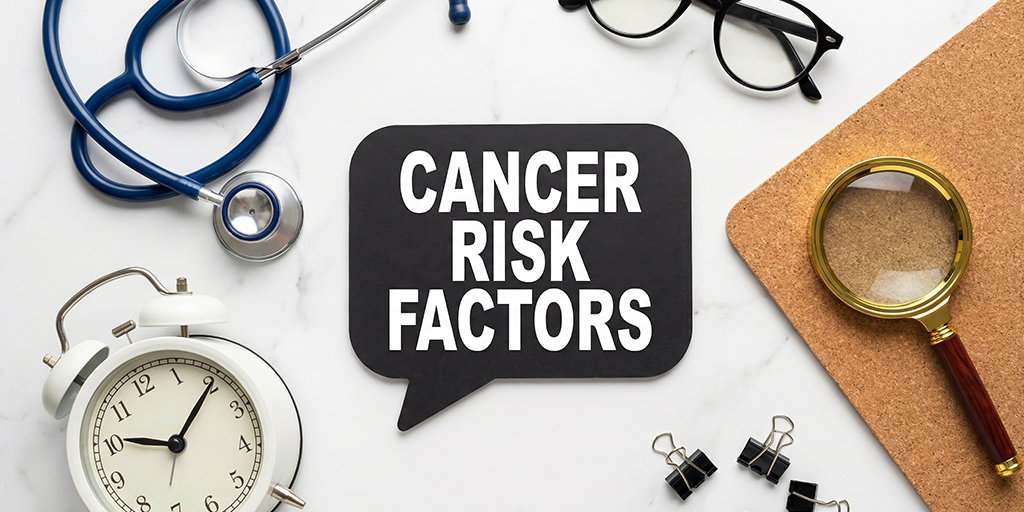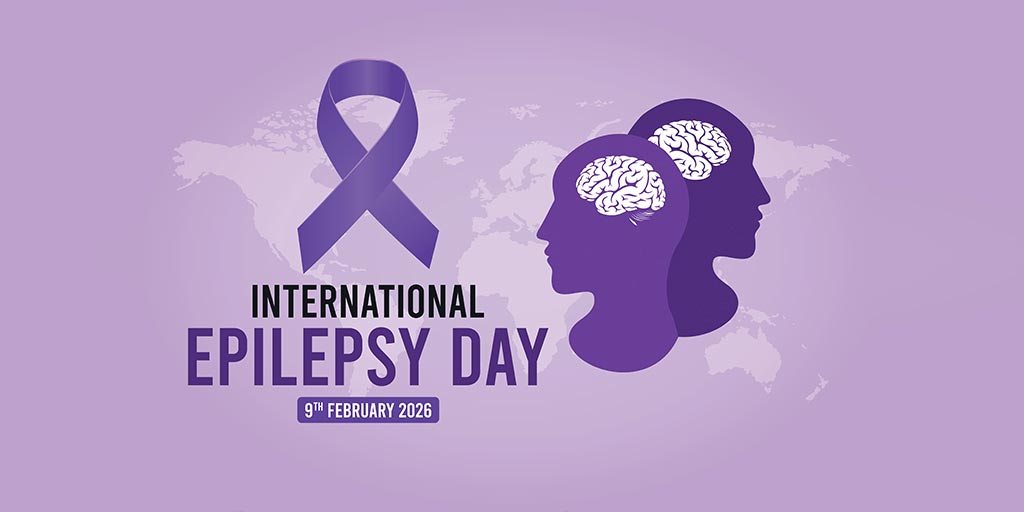At Graphic Era Hospital, we understand that kidney issues not only affect the quality of life of affected individuals, they are also a matter of great concern for their families. Our experienced nephrologists, intensively-trained nursing staff, and state-of-the-art facilities ensure patients receive the highest level of expertise, making us one of the best hospitals for Nephrology in Dehradun. We understand that navigating kidney issues can be overwhelming, which is why our team makes patient education and emotional support a priority. We take the time to listen, answer questions, and guide patients and their families to make informed decisions. At Graphic Era Hospital, we don’t just address symptoms; we support individuals in achieving a healthier life, empowered by knowledge, understanding, and empathy.
Kidney Conditions Treated by Nephrologists at Graphic Era Hospital
The Nephrology Department at Graphic Era Hospital is equipped to provide expert care for a wide range of kidney-related conditions. These include but are not limited to:
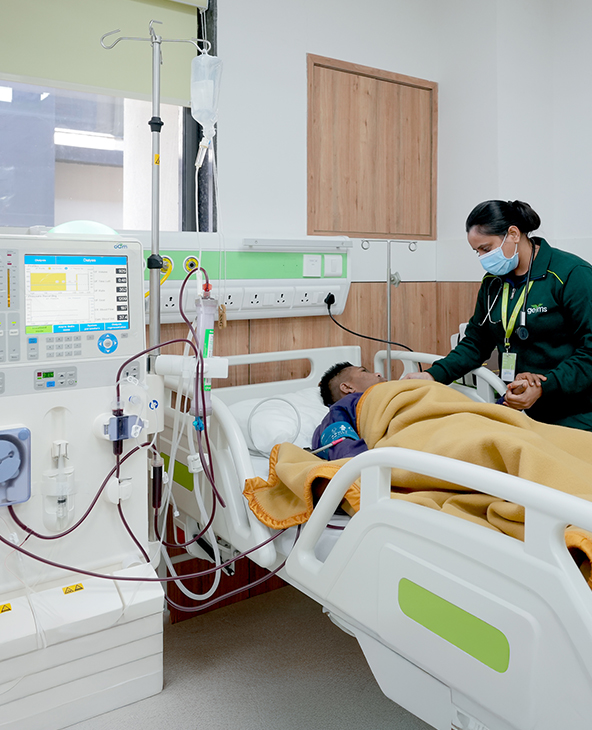
General Nephrology
Our expert nephrologists diagnose and manage kidney diseases at all stages, ensuring comprehensive care for every patient. Services include:
- Diagnosis and treatment of chronic kidney disease (CKD) and acute kidney injury (AKI).
- Management of conditions like glomerulonephritis, nephrotic syndrome, and polycystic kidney disease.
- Preventive care and regular monitoring for individuals at risk of kidney disease.
- Lifestyle and dietary guidance to promote optimal kidney health.
Critical Care Nephrology
We provide specialised kidney care for critically ill patients, ensuring advanced treatment in intensive care settings. Services include:
- Expert management of kidney failure in ICU patients.
- Continuous renal replacement therapy (CRRT) for unstable conditions.
- Precise monitoring and treatment of fluid and electrolyte imbalances.
- Collaborative approach with intensivists for multi-organ dysfunction management.
Haemodialysis
With FDA approved B. Braun Dialog Plus and Fresenius 4008S dialysis machines, we provide advanced haemodialysis services for both adults and children. Services include:
- Tunneled cuffed dialysis catheter insertion with both anterograde (old catheters) and retrograde catheter.
- Sustained low efficiency dialysis (SLED)
- Expert care from skilled nephrologists and trained technicians.
- Regular monitoring to assess dialysis effectiveness and overall health.
Hemodiafiltration
We offer state-of-the-art Hemodiafiltration services combining diffusion and convection to provide enhanced toxin removal for patients with kidney failure, ensuring better fluid balance and toxin clearance compared to conventional hemodialysis. Services include:
- Personalised dialysis plans tailored to individual patient needs
- Advanced filtration technology ensuring better fluid balance
- Expert nephrology care with continuous monitoring and support
Plasmapheresis
We offer specialised plasmapheresis treatment for autoimmune and blood-related disorders, ensuring safe and effective care. Services include:
- Removal of harmful antibodies in conditions like Guillain-Barré syndrome and myasthenia gravis.
- Treatment of severe glomerulonephritis and vasculitis.
- Performed using advanced apheresis technology for enhanced safety and effectiveness.
Peritoneal Dialysis
Our peritoneal dialysis services, including acute peritoneal dialysis, offer a convenient and effective home-based treatment for patients with chronic kidney disease. Services include:
- Dialysis catheter insertion and Continuous Ambulatory Peritoneal Dialysis (CAPD)
- Option for Automated Peritoneal Dialysis (APD)
- Comprehensive training for patients and caregivers to perform dialysis safely at home.
As a leading nephrology hospital in Dehradun, Graphic Era Hospital offers cutting-edge diagnostics, personalised care, and holistic treatment approaches to support kidney health.
Diagnostic and Therapeutic Techniques at Graphic Era Hospital
- Blood Tests: Evaluate kidney function by measuring creatinine, urea, and GFR levels. These tests are used for early detection, monitoring, and assessing treatment outcomes.
- Urine Tests: Identify abnormalities like protein, blood, or infection in the urine. These are used to diagnose conditions such as UTIs, nephrotic syndrome, and glomerulonephritis.
- Ultrasound for Kidney Imaging: Non-invasive imaging to assess kidney size, shape, and detect obstructions or cysts. We use ultrasound for real-time insights into kidney health and function.
- CT Scans and MRIs for Renal Diseases: Advanced imaging to detect kidney stones, tumours, and vascular conditions. Our specialists rely on these techniques for precise diagnosis and treatment planning.
- Kidney Biopsy: A minimally invasive procedure to collect kidney tissue for microscopic examination. We use biopsies to diagnose complex kidney diseases like glomerulonephritis and vasculitis.
- USG Guided Native and Transplant Kidney Biopsy: A minimally invasive procedure used to evaluate kidney diseases in both native and transplant kidneys. We ensure precision and safety using advanced imaging technology for accurate sampling and diagnosis.
- Dialysis (Hemodialysis and Peritoneal Dialysis): Life-saving treatments for removing waste and toxins in patients with kidney failure. We offer a number of dialysis options as per patients’ needs.
At Graphic Era Hospital, our state-of-the-art facilities ensure accurate diagnosis and effective management of all kidney-related conditions, tailored to each patient's needs.
Doctors Available
Why Choose Graphic Era Hospital for Nephrology Care?
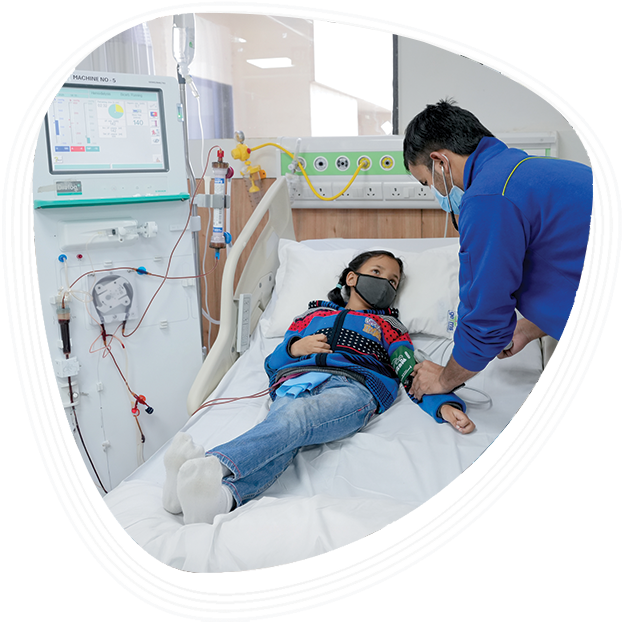
When to Consult a Nephrologist?
Early consultation with a nephrologist can make a significant difference in managing and treating kidney conditions effectively. You should consider seeing a nephrologist if you experience any of the following symptoms:
- Persistent Swelling (Oedema): Swelling in the legs, feet, hands, or face due to fluid retention, often caused by impaired kidney function failing to balance fluid levels.
- Changes in Urination Patterns: Increased frequency, particularly at night (nocturia), difficulty urinating, or reduced urine output despite adequate fluid intake.
- High Blood Pressure (Hypertension): Uncontrolled or severe high blood pressure despite taking medication. Hypertension can cause or worsen kidney disease over time.
- Chronic Fatigue and Mental Fog: Persistent tiredness, weakness, lethargy, or difficulty concentrating, often resulting from waste and toxins build up in the bloodstream.
- Recurrent Kidney Stones or Flank Pain: Frequent episodes of kidney stones that don’t resolve with standard treatments. Often accompanied by pain in the lower back or side (flank).
- Recurring Urinary Tract Infections (UTIs): Frequent UTIs that don’t respond well to treatment or recur often. Kidney infections (pyelonephritis) can arise from untreated or severe UTIs.
- Family History of Kidney Disease: A close relative with a history of kidney disease, such as Polycystic Kidney Disease (PKD). Genetic predisposition calls for regular monitoring.
- Existing Chronic Conditions: Disorders such as diabetes and hypertension can damage kidney filters, leading to chronic kidney disease (CKD), and can impair kidney function over time.
- Abnormal Blood or Urine Test Results: Elevated creatinine levels or decreased glomerular filtration rate (GFR) in blood tests, or presence of protein (proteinuria) or blood in urine.
- Pregnancy-Related Complications: High blood pressure or protein in urine during pregnancy (preeclampsia). Chronic kidney disease can pose risks to both the mother and baby.
- Other Warning Signs: Persistent itching or dry skin due to build-up of toxins in the bloodstream; nausea, vomiting, or loss of appetite caused by reduced kidney function, or difficulty breathing or chest pain resulting from fluid overload.
Risks and Complications of Kidney Disease
If left untreated, kidney disease can lead to various risks and complications. These include but are not limited to:- Kidney Failure and Need for Dialysis: Progressive damage can lead to the kidneys losing their ability to filter waste, requiring dialysis or a kidney transplant. Early detection and treatment are key to slowing progression and delaying the need for replacement therapy.
- Heart Disease (Due to Kidney Disease): Kidney disease increases the risk of cardiovascular issues, including heart attack and stroke. We provide integrated care to manage both kidney and heart health through medications and lifestyle interventions.
- High Blood Pressure: Damaged kidneys can cause or worsen hypertension, creating a vicious cycle that further harms kidney function. Our specialists focus on strict blood pressure control to protect overall health.
- Electrolyte Imbalances: Impaired kidneys struggle to maintain proper levels of sodium, potassium, and other electrolytes, leading to muscle weakness, irregular heartbeats, or seizures. We monitor and manage these imbalances with tailored treatments and dietary recommendations.
- Anemia (Due to Kidney Failure): Kidney failure reduces the production of erythropoietin, a hormone needed for red blood cell production, causing fatigue and weakness. Our approach includes hormone therapy, iron supplements, and dietary adjustments to manage anemia.
- Bone Disease : Kidney disease disrupts calcium and phosphorus balance, leading to weak or brittle bones. We offer treatments like phosphate binders, vitamin D supplements, and dietary advice to protect bone health.
Top Procedures
- Dialysis
- Maintenance haemodialysis
- Acute haemodialysis
- SLEDD
- Peritoneal dialysis (CAPD)
- Plasmapheresis
- Permacath insertions
- Kidney biopsies
- Avfistula creation
- Avgraft creation
- Fistulograms and AVF salvage procedures- thrombolysis
Nephrology Conditions Treated at Graphic Era Hospital
Advanced Diagnostics & Technology
- Offers high-resolution imaging for detailed blood vessel analysis, aiding in accurate diagnosis and treatment planning.
- Delivers advanced imaging with high resolution for clear, detailed views of soft tissues, ensuring precise diagnostics.
- Provides high-quality, detailed radiographic images for accurate diagnosis with minimal exposure to radiation.
Other Specialities
Patient Stories
Blog
Frequently Asked Questions (FAQs)
What is the role of a nephrologist?
A nephrologist specialises in diagnosing and treating kidney-related conditions, managing dialysis, and providing care for transplant patients.
How can I protect my kidneys from damage?
Maintaining a healthy lifestyle, managing conditions like diabetes and hypertension, drinking plenty of water, and avoiding overuse of medications can help protect your kidneys.
What are the early signs of kidney disease?
Early signs include swelling, changes in urination, persistent fatigue, difficulty concentrating, and high blood pressure.
Is dialysis the only treatment for kidney failure?
Dialysis is a common treatment for kidney failure, but kidney transplants and lifestyle modifications can also play critical roles in managing the condition. Prevention of Kidney Disease from progressing to Renal failure by following up with your Nephrologist can avoid the morbidities and mortality associated with kidney failure.
How often should I get my kidneys checked?
People with risk factors like diabetes, hypertension, or a family history of kidney disease should have regular check-ups, typically annually or as advised by their doctor.



